The human body can withstand a great deal of wear and tear but that doesn’t mean it is immune to injury. Orthopaedic injuries, which are essentially injuries to the bones and/or muscles, are some of the most common types of injuries. They may be related to sports, overuse/arthritis, a fall, or another type of accident. Orthopaedic injuries we commonly see at Advanced Ortho and Spine include:
 Ankle Sprains
Ankle Sprains
Ankle sprains occur when the ankle twists, rolls, or turns awkwardly beyond its limits. This can make the tough bands of tissue (ligaments) that help hold the ankle bones together stretch or tear. Typically, sprained ankles cause pain, swelling, and limited range of motion. Often, people can treat a sprained ankle at home with rest, ice, and over-the-counter pain relievers. However, severe sprains may require professional medical treatment.
Rotator Cuff Tears
A rotator cuff tear is a tear in the tendons (tissues that connect muscles to bone) around the shoulder joint. Typically, repeatedly performing the same shoulder motions over and over can lead to a rotator cuff tear. Common symptoms are shoulder pain and weakness. Often, treatment includes rest, medication, physical therapy, corticosteroid injections, and possibly surgery.
ACL Tears
An anterior cruciate ligament (ACL) tear involves the tissue that connects the thighbone to the shinbone at the knee. Furthermore, most ACL injuries occur while playing sports that require sudden twisting motions such as football, basketball, soccer, and tennis. Symptoms often include knee swelling, pain/tenderness, and instability. Progressive physical therapy and rehabilitation can be used to conservatively treat mild cases and partial tears. However, more severe cases may require surgery, especially for patients with ACL tears in combination with other knee injuries.
Wrist Fractures
Most often, a fall, sports injury, or other accident can cause a distal radius fracture. Common symptoms are pain, tenderness, swelling, and/or bruising. Sometimes simply wearing a cast or splint will help repair a broken wrist. However, severe cases may require surgery to hold the bone in place while the wrist heals.
 Tennis Elbow
Tennis Elbow
Tennis elbow is an inflammation of the tissue that connects the elbow to the forearm muscle. Often, repetitive wrist and arm motions cause tennis elbow. The primary symptom is pain, typically on the outside of the elbow. Treatment includes rest, over-the-counter pain relievers, and physical therapy.
Meniscus Tears
A torn meniscus is an injury that occurs in the rubbery cartilage in the knee that helps cushion and protect the shinbone from the thigh bone. Typically, a forceful twisting motion tears the cartilage, causing this injury. Symptoms include pain/tenderness, swelling, stiffness, and difficulty extending the leg at the knee. Typical treatments include rest, ice, over-the-counter pain medications, and physical therapy.
Plantar Fasciitis
Plantar fasciitis is an inflammation of the thick band of tissue that runs across the bottom of the foot connecting the heel bone to the toes. Interestingly, the exact cause remains unknown. However, we do know that tension and stress in the fascia can cause irritation and inflammation. Symptoms include pain, often described as a stabbing pain, at or near the heel. For most, the pain also tends to worsen in the morning upon waking. Physical therapy, shoe inserts, steroid injections, Extracorporeal Pulse Activation Technology (EPAT), and surgery are used as treatments for plantar fasciitis.
Compression Fractures
Compression fractures occur when one or more bones in the spine weaken and collapse. Typically, a loss in bone mass (osteoporosis) that occurs due to ageing causes these injuries. Additionally, compression fractures can occur because of a fall, coughing, or lifting a heavy object. Symptoms include back pain, a loss in height, and hunching over. Physical therapy and over-the-counter pain relievers may be used to conservatively treat compression fractures. Furthermore, surgical procedures, such as kyphoplasty, can also be used to repair and stabilize the spine.
 Carpal Tunnel Syndrome
Carpal Tunnel Syndrome
Carpal tunnel syndrome, also known as median nerve compression, is the result of a pinched nerve in the wrist. It can cause the hand and arm to tingle and feel numb. Often, symptoms include pain in the hand and arm. Typically, treatment includes rest, ice, wrist braces or splints, and cortisone injections. In more severe cases, surgery may be required. Importantly, carpal tunnel syndrome is not the same thing as cubital tunnel syndrome.
Shoulder Dislocations
A dislocated shoulder occurs when the round ball of the upper arm bone pops out of the shoulder blade socket. Symptoms include pain, swelling, and an inability to move the joint. Additionally, a dislocated shoulder often has visible symptoms. In fact, you may notice the shoulder suddenly appears out of place with a lump or bulge under the skin. Moreover, it may even look square rather than round. Conservative treatments include popping the bone back in place, bracing or splinting, pain medication, and physical therapy. Occasionally, severe cases may require surgery.
When should I talk to a doctor?
The best way to avoid injury is to take steps to prevent injury. However, you can’t always avoid it. So, if you’ve experienced an injury and are having any type of moderate to severe and/or chronic pain, swelling, weakness, soreness, numbness, etc., you should contact a medical professional immediately. This will help ensure you receive the proper diagnosis and treatment plan.
Advanced Ortho & Spine can help.
At Advanced Ortho & Spine (AOS), we specialize in caring for patients with orthopaedic injuries. In fact, most are able to get back to living their best lives with only conservative treatment, like physical therapy. Our team specializes in treating a full range of orthopaedic conditions. Schedule an appointment by calling 615.885.0200 or request an appointment online today.
 Dr. Christopher Cook is a Board-Certified Orthopaedic Surgeon and Sports Medicine & Joint Replacement Specialist at Advanced Ortho and Spine. He provides a full spectrum of Joint Replacement, Sports Medicine, and Shoulder & Upper Extremity services. Contact us today for more information or to request an appointment.
Dr. Christopher Cook is a Board-Certified Orthopaedic Surgeon and Sports Medicine & Joint Replacement Specialist at Advanced Ortho and Spine. He provides a full spectrum of Joint Replacement, Sports Medicine, and Shoulder & Upper Extremity services. Contact us today for more information or to request an appointment.
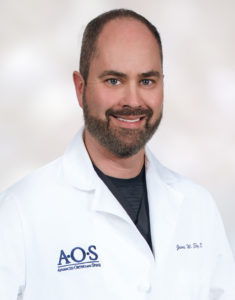
James Eby, MD, is a board-certified physiatrist, who specializes in nonoperative spinal procedures at Advanced Ortho & Spine. He provides a full spectrum of Physical Medicine treatments. Contact us today for more information or to request an appointment.
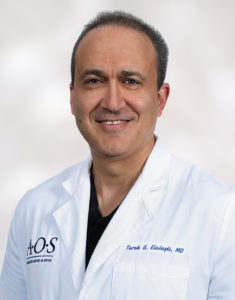 Dr. Tarek Elalayli is a board-certified orthopaedic spine surgeon, who specializes in treating a full range of spinal conditions. Contact us today for more information or to request an appointment.
Dr. Tarek Elalayli is a board-certified orthopaedic spine surgeon, who specializes in treating a full range of spinal conditions. Contact us today for more information or to request an appointment.
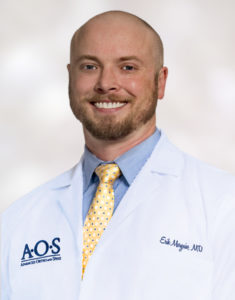 Dr. Erik Maryniw is a Board-Certified Hand and Upper Extremity Orthopaedic Surgeon at Advanced Ortho and Spine. He provides a full spectrum of Orthopaedic care and Microvascular Surgery from the hand to the shoulder. Contact us today for more information or to request an appointment.
Dr. Erik Maryniw is a Board-Certified Hand and Upper Extremity Orthopaedic Surgeon at Advanced Ortho and Spine. He provides a full spectrum of Orthopaedic care and Microvascular Surgery from the hand to the shoulder. Contact us today for more information or to request an appointment.
 Mitul Patel, MD is a board-certified orthopaedic spine surgeon, who specializes in treating a full range of spinal conditions. Contact us today for more information or to request an appointment.
Mitul Patel, MD is a board-certified orthopaedic spine surgeon, who specializes in treating a full range of spinal conditions. Contact us today for more information or to request an appointment.
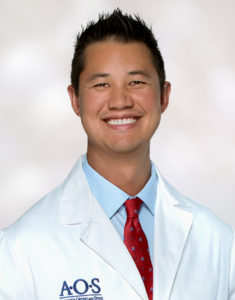 Dr. Lee Swiderek is a Fellowship-Trained Orthopedic Surgeon & Joint Replacement Specialist at Advanced Ortho and Spine. He provides a full spectrum of Joint Replacement and Complex Hip and Knee Reconstruction services. Contact us today for more information or to request an appointment.
Dr. Lee Swiderek is a Fellowship-Trained Orthopedic Surgeon & Joint Replacement Specialist at Advanced Ortho and Spine. He provides a full spectrum of Joint Replacement and Complex Hip and Knee Reconstruction services. Contact us today for more information or to request an appointment.
 Dr. Daniel Hagaman is a Fellowship-Trained Orthopaedic Surgeon & Sports Medicine Specialist at Advanced Ortho and Spine. He specializes in a range of orthopaedic conditions and treatments including Knee Arthroscopy, Knee Ligament & Cartilage Repair, Shoulder Arthroscopy, Hip Arthroscopy, Orthobiologistics, and more. Contact us today for more information and to request an appointment.
Dr. Daniel Hagaman is a Fellowship-Trained Orthopaedic Surgeon & Sports Medicine Specialist at Advanced Ortho and Spine. He specializes in a range of orthopaedic conditions and treatments including Knee Arthroscopy, Knee Ligament & Cartilage Repair, Shoulder Arthroscopy, Hip Arthroscopy, Orthobiologistics, and more. Contact us today for more information and to request an appointment.
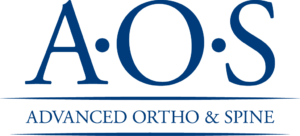
With two locations near Nashville in Mt. Juliet and Hermitage, Advanced Ortho and Spine provides patients with high-quality, personalized care while advancing orthopaedic excellence. Contact us today to learn more or to schedule your appointment.
Disclaimer: This blog provides general information and discussions about health and related subjects. The information and other content provided in this blog, or in any linked materials, are not intended and should not be construed as medical advice, nor is the information a substitute for professional medical expertise or treatment.If you or any other person has a medical concern, you should consult with your healthcare provider or seek other professional medical treatment. Never disregard professional medical advice or delay in seeking it because of something read on this blog or in any linked materials. If you think you may have a medical emergency, call your doctor or emergency services immediately.
The opinions and views expressed on this blog and website have no relation to those of any academic, hospital, health practice, or other institution.

